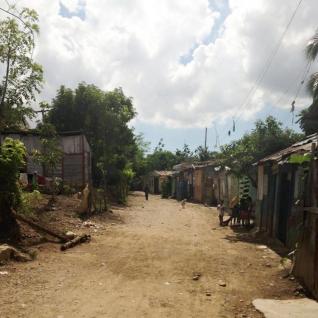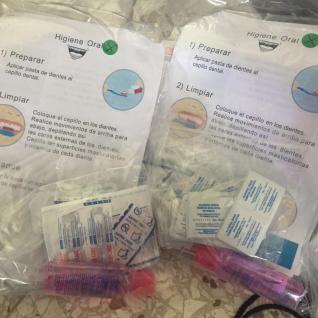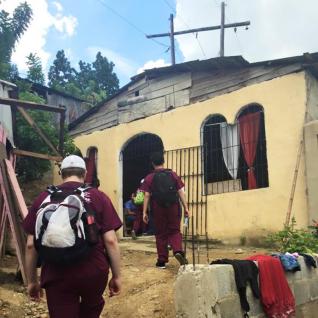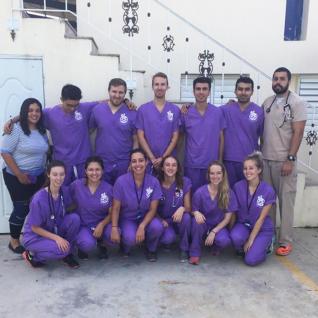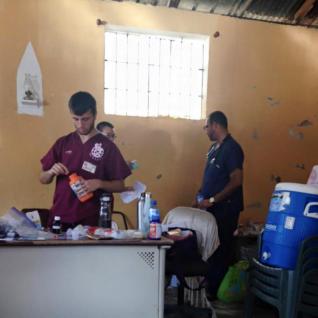It was while helping care for a toddler with a respiratory-tract infection in a rural Dominican village that Matthew Metcalfe immediately recognized the importance of providing health care to those in need.
“It was such a surreal feeling. It was a moment you realize the importance in providing sustainable medical care to people who can’t access it,” says Metcalfe, who worked as a volunteer with physicians and other health outreach students to help break the child’s fever which was escalating rapidly.
Metcalfe, a recent graduate of the human biology and mental health studies program at U of T Scarborough, was in El Mangular, a rural village on the southeast coast of the Dominican Republic as part of the International Service Learning (ISL) H.E.A.R.T initiative.
ISL H.E.A.R.T. started six years ago when a friend of Metcalfe’s wondered what actually happens to a community once health outreach programs leave. It sparked an idea — to create a consistent presence to ensure true change within communities in need of medical care.
“The goal has been continued health care, prevention and education for the village to take a more proactive approach to health care instead of a responsive one,” says Metcalfe, who is the co-president of the initiative at U of T Scarborough. He has travelled to El Mangular every year since the group formed.
ISL is an organization that has worked with volunteers to provide basic health-care services to communities in need for 22 years. U of T, along with other student groups (with representatives) across various Canadian universities, joined to form ISL H.E.A.R.T. Each team rotates visiting El Mangular every three to four months to provide consistent care.
“The people are extremely friendly and welcoming. The village has a strong sense of community and a very upbeat feeling to it, despite the limitations which lead to many obstacles and barriers in the day to day life of its citizens,” says Metcalfe.
El Mangular is about 20 minutes away from Santo Domingo, the country’s capital. The demographics are split between Dominican-born residents and Haitians, with the two main languages spoken being Spanish and Creole. Sometimes the team needs three translators to effectively communicate with local villagers.
The team aids local physicians in the first steps of a physical examination, like asking questions with triage patients. Local physicians make the final diagnosis and administer prescriptions.
Common health issues include fungal, parasitic and bacterial infections. Respiratory-tract infections are more common in younger patients, while hypertension and diabetes are more prevalent in older patients.
They also administer family and baby hygiene kits that patients can take home. The kits come with illustrated instructions in basic Spanish and Creole so patients can use them effectively.
“It’s easy to tell someone that they need to clean a wound and cover it up,” Metcalfe says. “But if someone does not have access to the necessary resources to do so it is simply not an option for them”
Metcalfe has noticed that the need for acute medical care has declined over the years. As someone passionate about the well-being of the people of El Mangular, he says this it’s a positive and encouraging development. The group is also working on strategies to train village leaders in taking on various roles in the hope of helping to empower the community.
“We’re not the experts in the needs of a particular country,” Metcalfe says. “This why input from local physicians and empowering leaders in the El Mangular community is so important.”
As for Metcalfe, he is taking this year to study for medical school exams. He’s always had a passion for science, but being part of ISL H.E.A.R.T has also opened his eyes to the importance of providing meaningful health education to those without access.
“When physicians are able to foster a comforting environment for their patients, it improves the doctor-patient interaction which is a vital tool for effective healthcare and patient well-being,” says Metcalfe.

